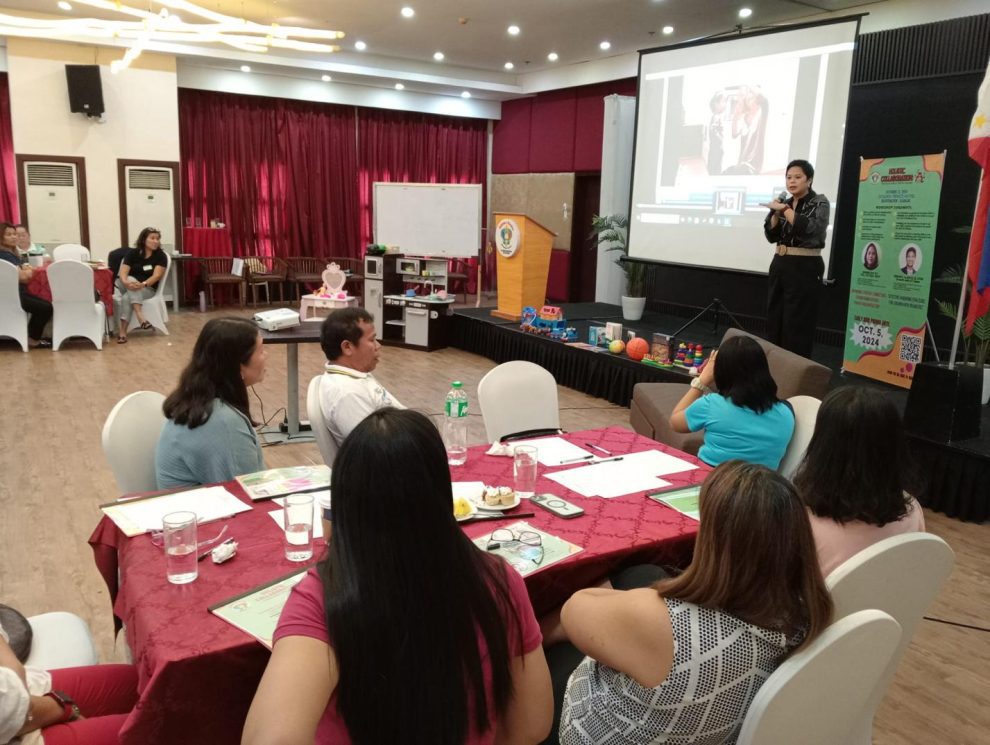To help parents learn parenting strategies for children with intellectual and developmental disabilities (IDD), the Children Paradise Montessori School (CPMS) recently held the Holistic Collaboration: The Key to Build a Child for Success.
The workshop featured two speakers— Cesar Llanto, an occupational therapist, and Nadine Joy Sy, a speech-language pathologist.
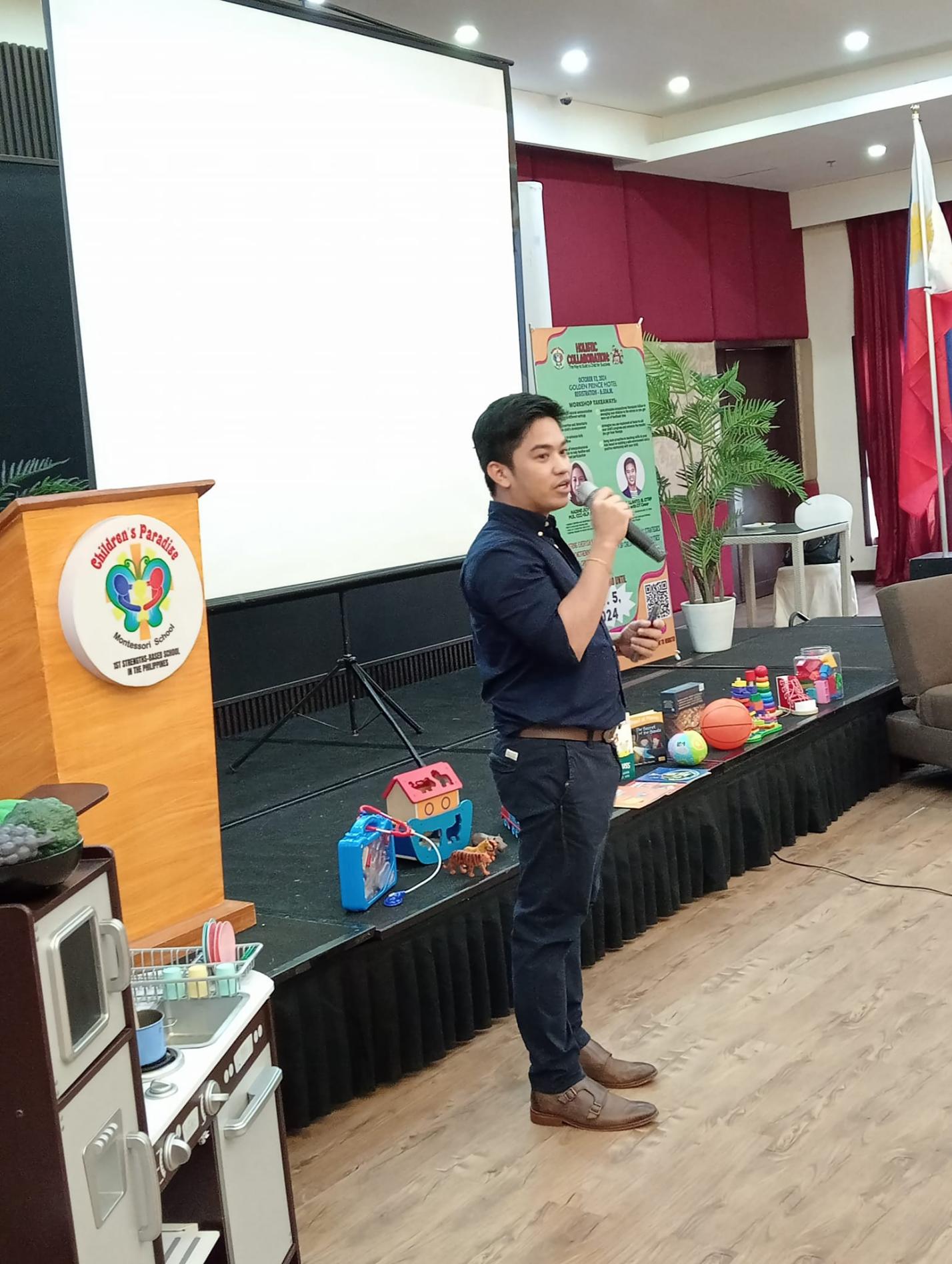
Llanto, an expert in childhood developmental disabilities, emphasized the critical importance of early detection in improving the lives of children with IDD. Early identification of developmental challenges, such as autism or ADHD, allows parents and professionals to intervene sooner, setting the stage for better long-term outcomes.
Llanto stressed the significance of observing children’s behavior in the home, school, and social environments. While every child’s development is unique, parents should pay close attention to difficulties in functioning, whether it’s challenges with playing, learning, or making friends.

“If it’s affecting their function in the home setting, school setting, or with relationships, that would need a diagnosis,” Llanto explained, highlighting how different diagnoses have distinct early warning signs.
For those with autism, signs can appear as early as one to three years of age, including restricted types of play or repetitive behaviors. Early detection ensures targeted therapies and interventions would help children manage their challenges. For conditions like ADHD, assessing how the child’s activity level and attention span affect their daily life is crucial for diagnosis.
Llanto also underscored the indispensable role of parents in the intervention process. He emphasized that while professionals bring expertise in managing disabilities, parents are vital to determining what intervention is needed. Understanding the family’s culture, expectations, and values is essential in tailoring interventions that fit the child’s needs and the family’s lifestyle.

“We have to learn from the parents their culture, their behavioral expectations. We always view the parents as the expert for the child,” Llanto shared, pointing out the importance of a collaborative approach.
However, one of the main challenges is consistency in managing the child’s needs. Many parents, especially those less knowledgeable about their child’s condition, may struggle to maintain consistent strategies across different environments.
Llanto noted that professional support and guidance are crucial in ensuring that parents feel empowered and capable of managing their child’s condition effectively. Access to qualified professionals, however, remains a significant issue in the Philippines due to a shortage of specialists like occupational and speech therapists.
Meanwhile, Nadine Joy Sy, a speech-language pathologist, highlighted the significance of effective communication between parents and children with intellectual and developmental disabilities (IDD). Sy, who has extensive experience working both in the United States and the Philippines, emphasized that communication is a critical aspect of child development, particularly for children with IDD.
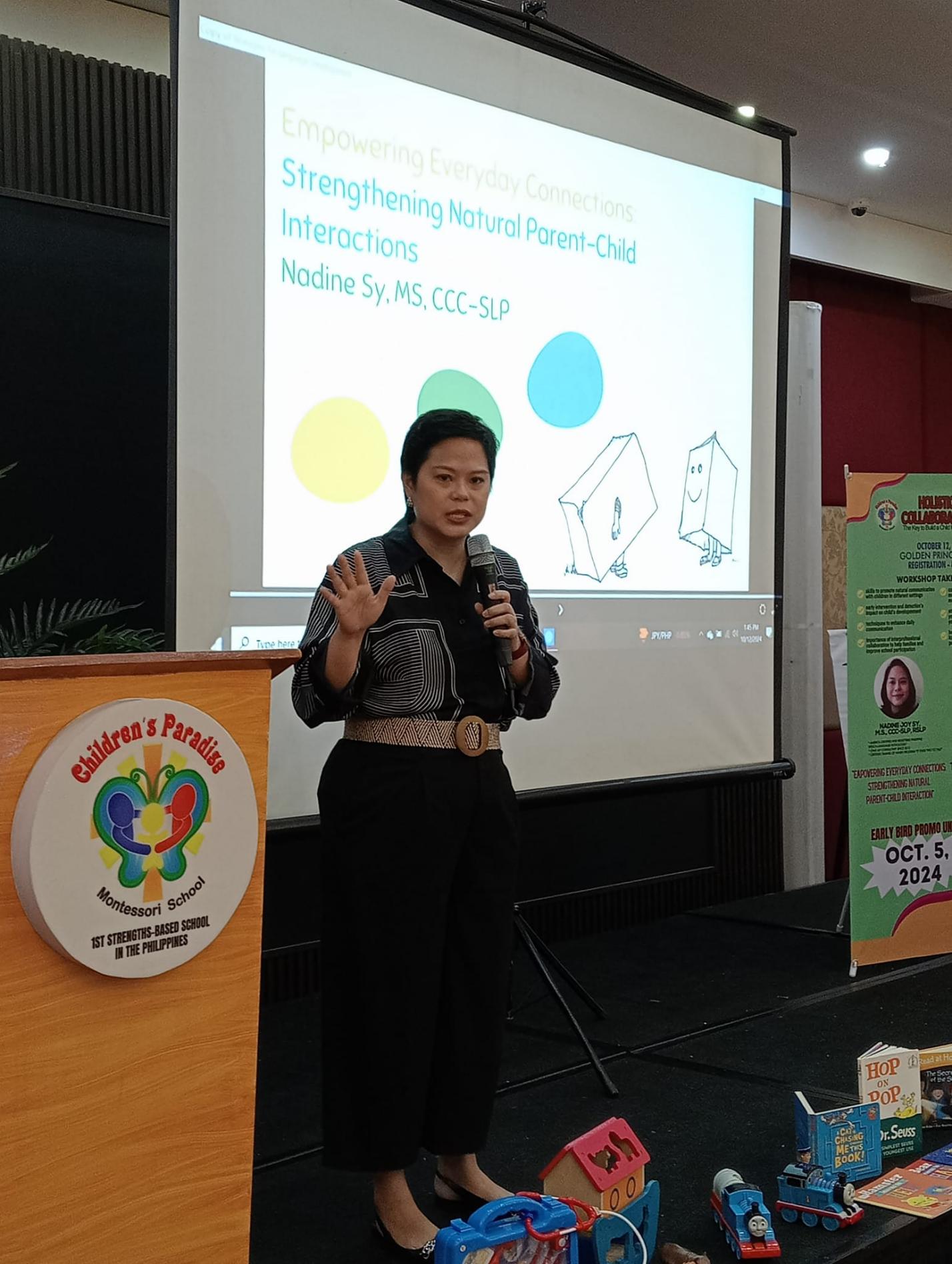
Sy pointed out that early intervention plays a crucial role in developing communication skills in children, even before they can fully sit or engage in typical learning tasks. Unfortunately, many parents wait until their children can perform certain milestones, such as sitting or attending for long periods, before seeking professional help. However, Sy explained that communication development can begin earlier through natural, playful interactions between parents and children.
One key takeaway from her experience is the need to shift from a “drill-based” approach—where children are asked repetitive questions about numbers or letters—towards more naturalistic, meaningful conversations. Parents can engage in imaginative play and descriptive conversations.
Sy stressed that children learn communication through play, not just from structured lessons. Interactive games like peekaboo, tickling, or talking about daily observations are essential to fostering a child’s communication skills.
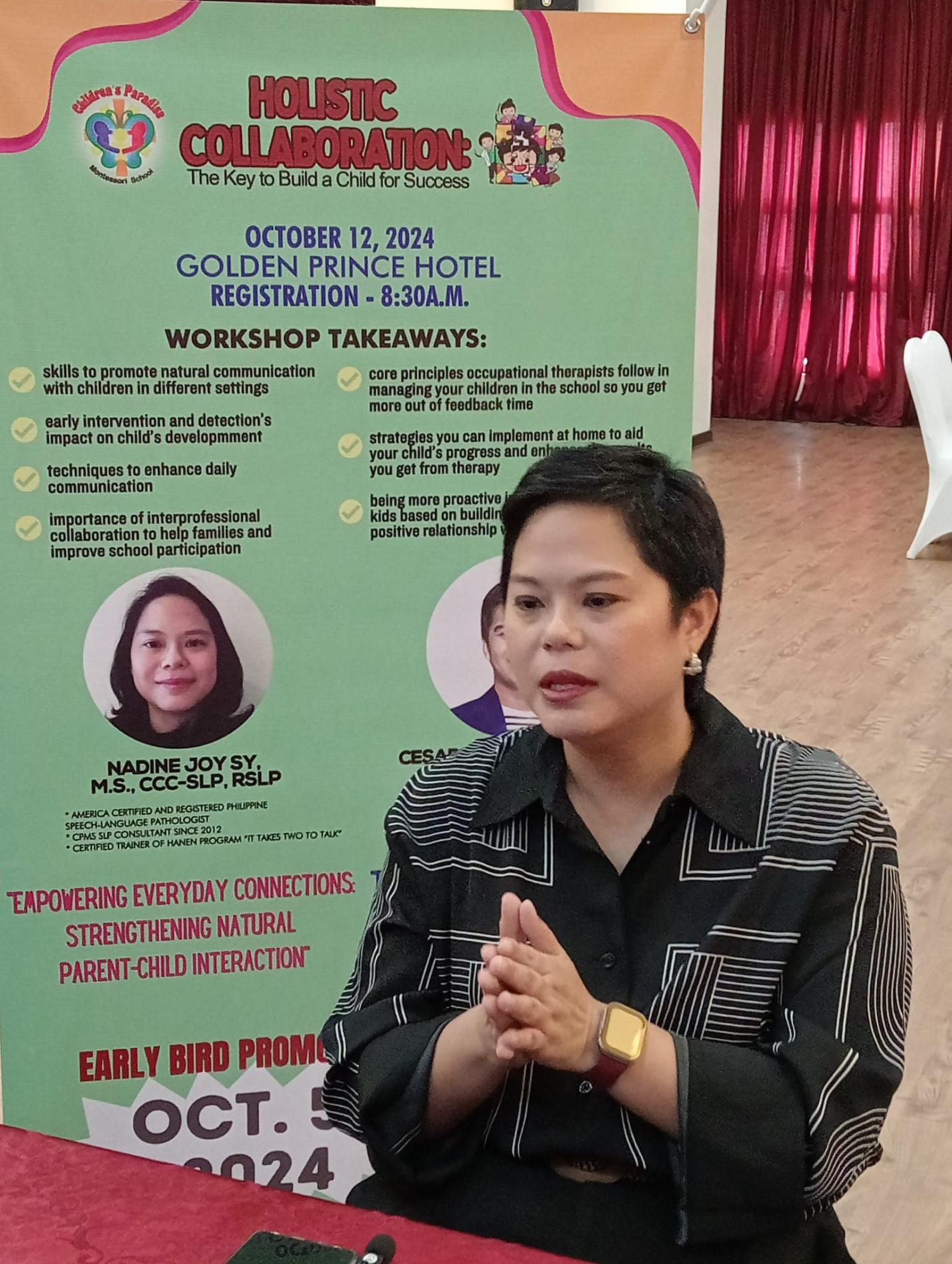
She also cautioned against over-reliance on digital devices, which, while sometimes necessary, should not replace real-world interaction. Instead, parents should focus on engaging their children in conversation, asking open-ended questions, and encouraging a back-and-forth exchange.

Cultural factors also play a role in developing a child’s communication skills. In many Asian cultures, including the Philippines, parents may not play or communicate with their children as actively as in Western cultures. Sy encouraged parents to break this pattern by being more involved in their child’s playtime and communication.
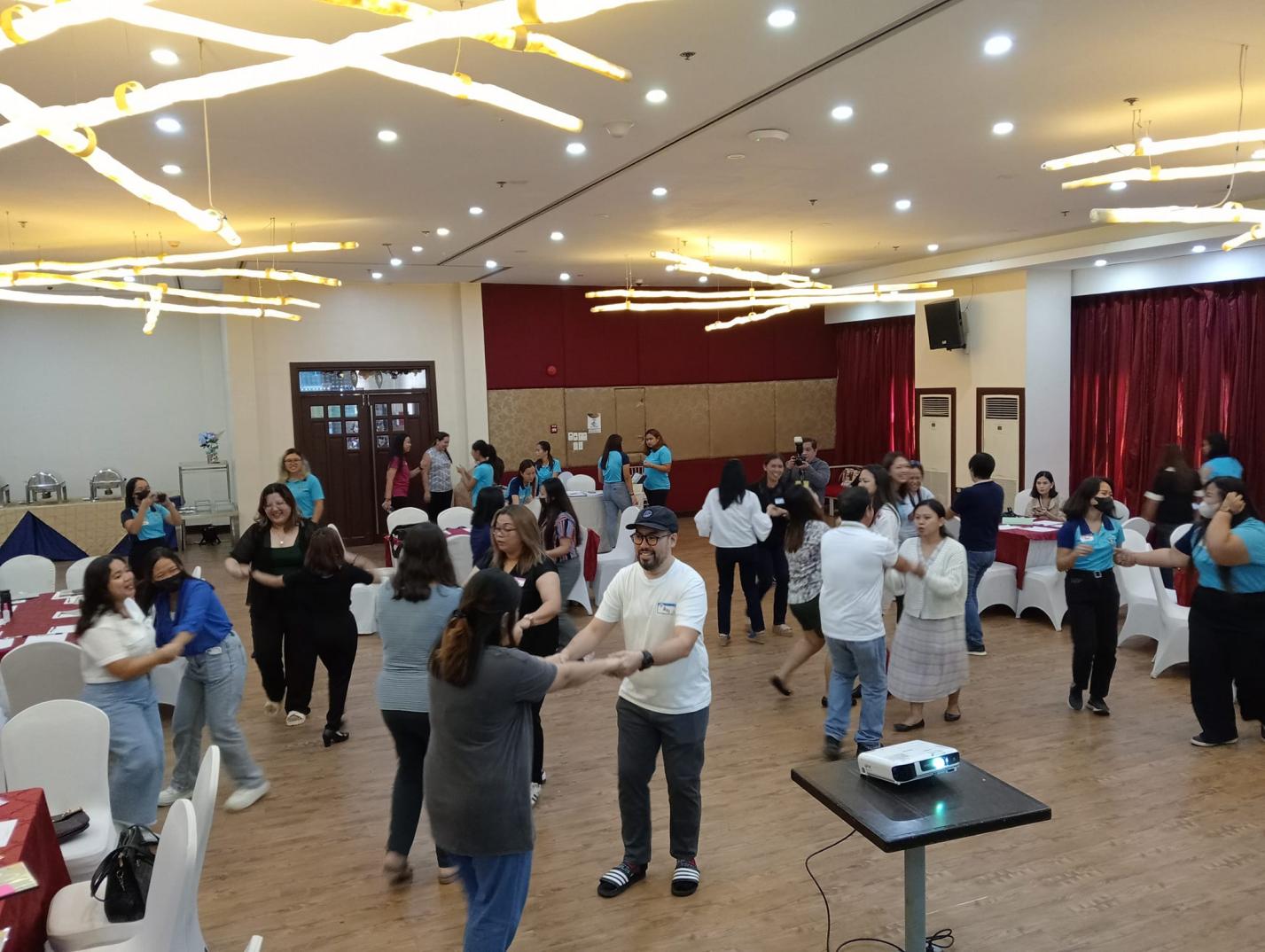
Overall, Sy’s insights serve as a reminder that communication is a two-way street and requires conscious effort from parents. For children with IDD, creating an environment filled with meaningful interaction, play, and encouragement can make a significant difference in their developmental journey. Early intervention and active communication from parents can help bridge the gap, allowing children with IDD to thrive socially and emotionally.







